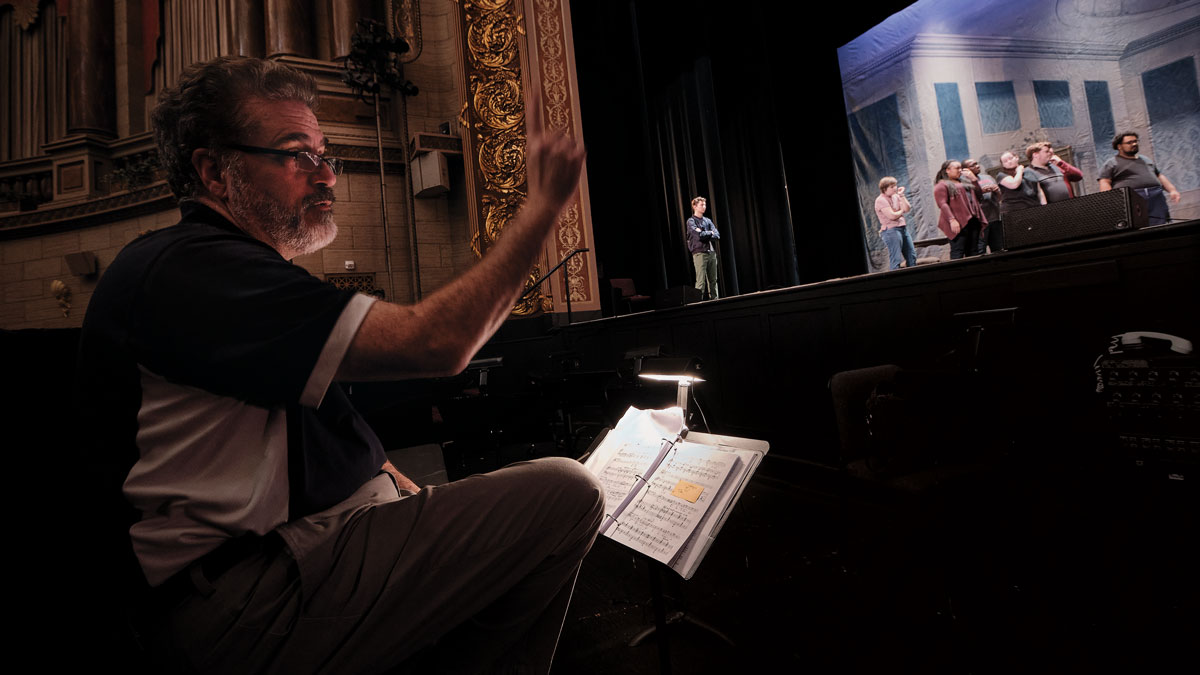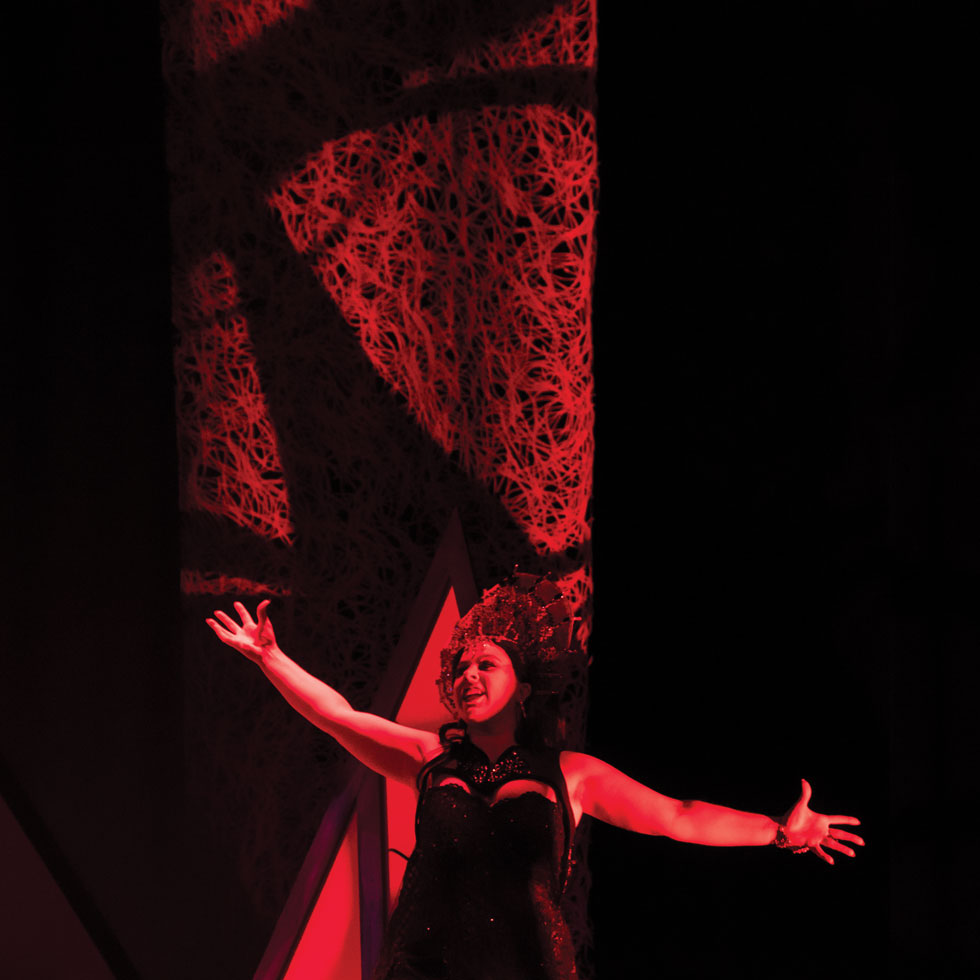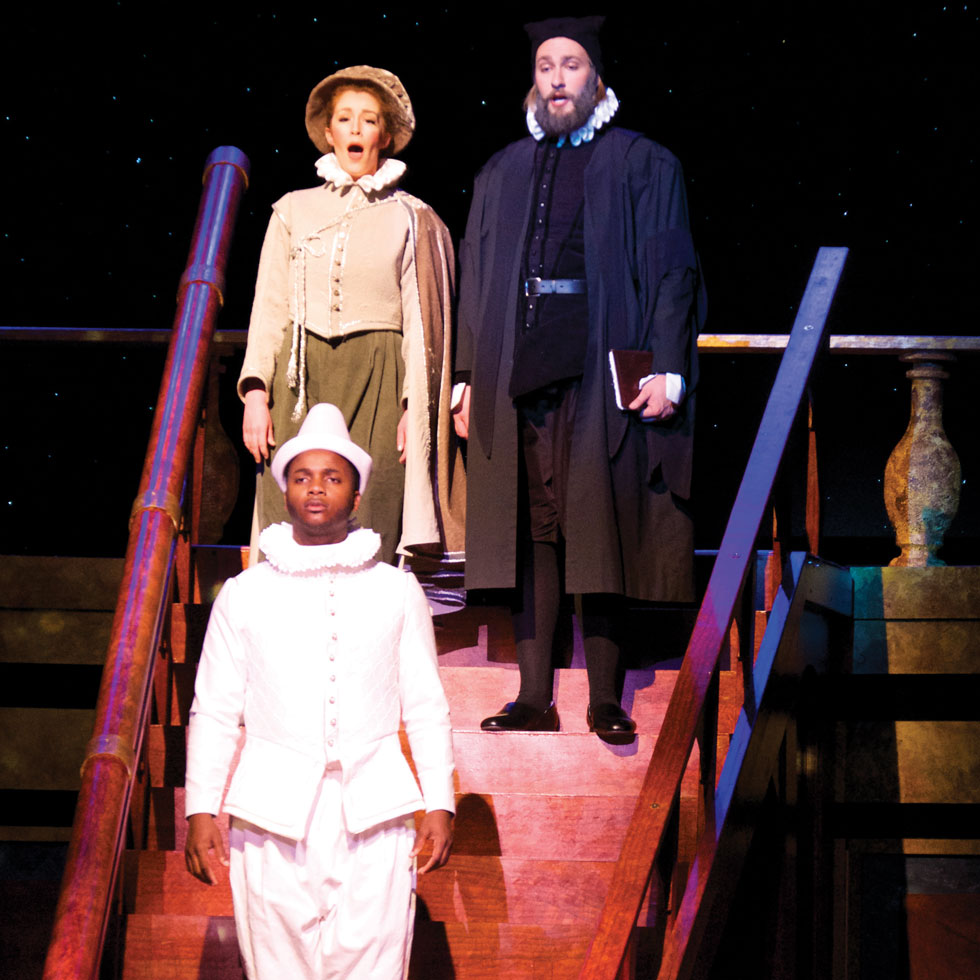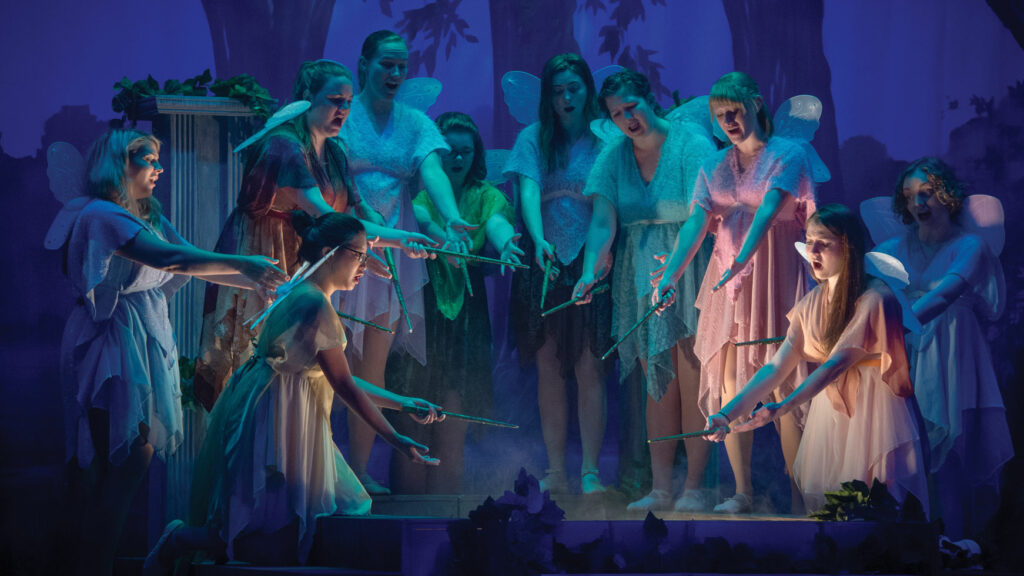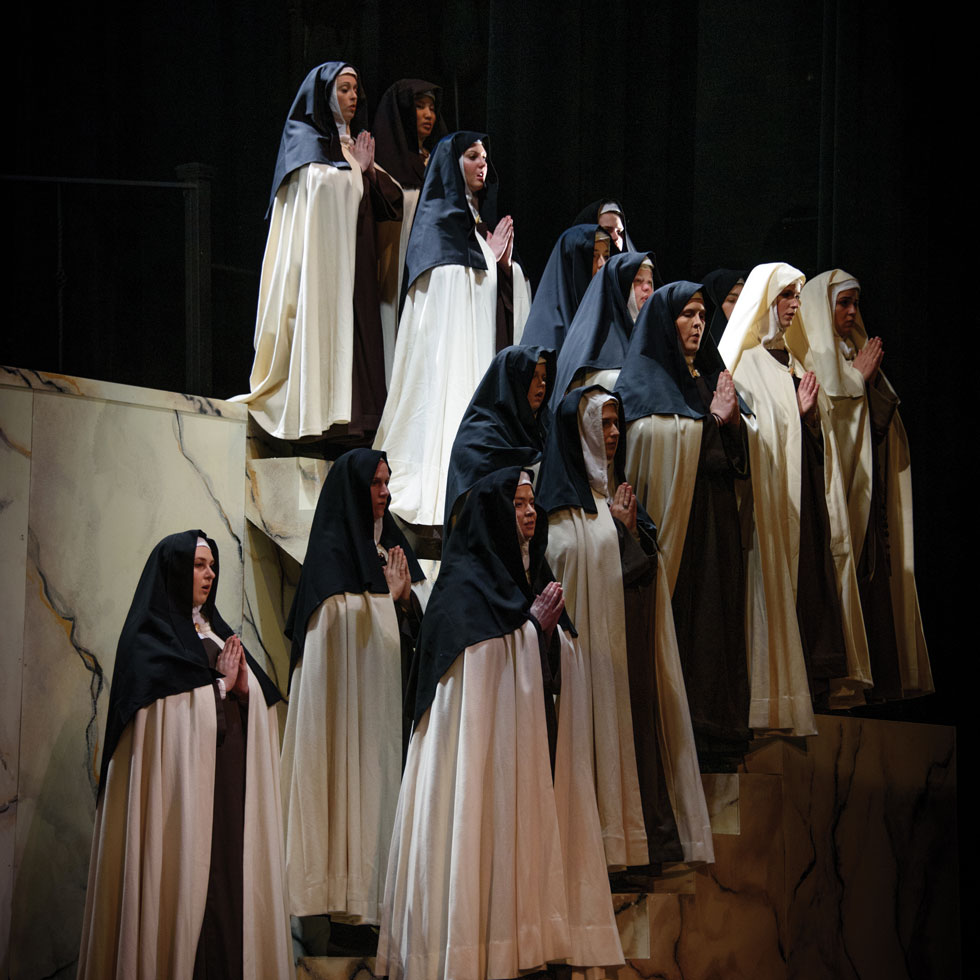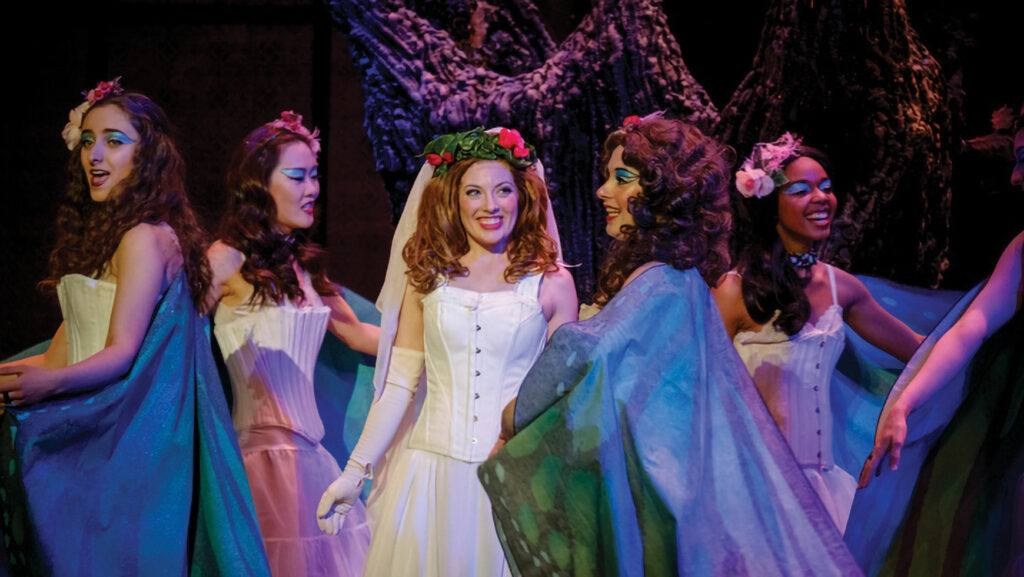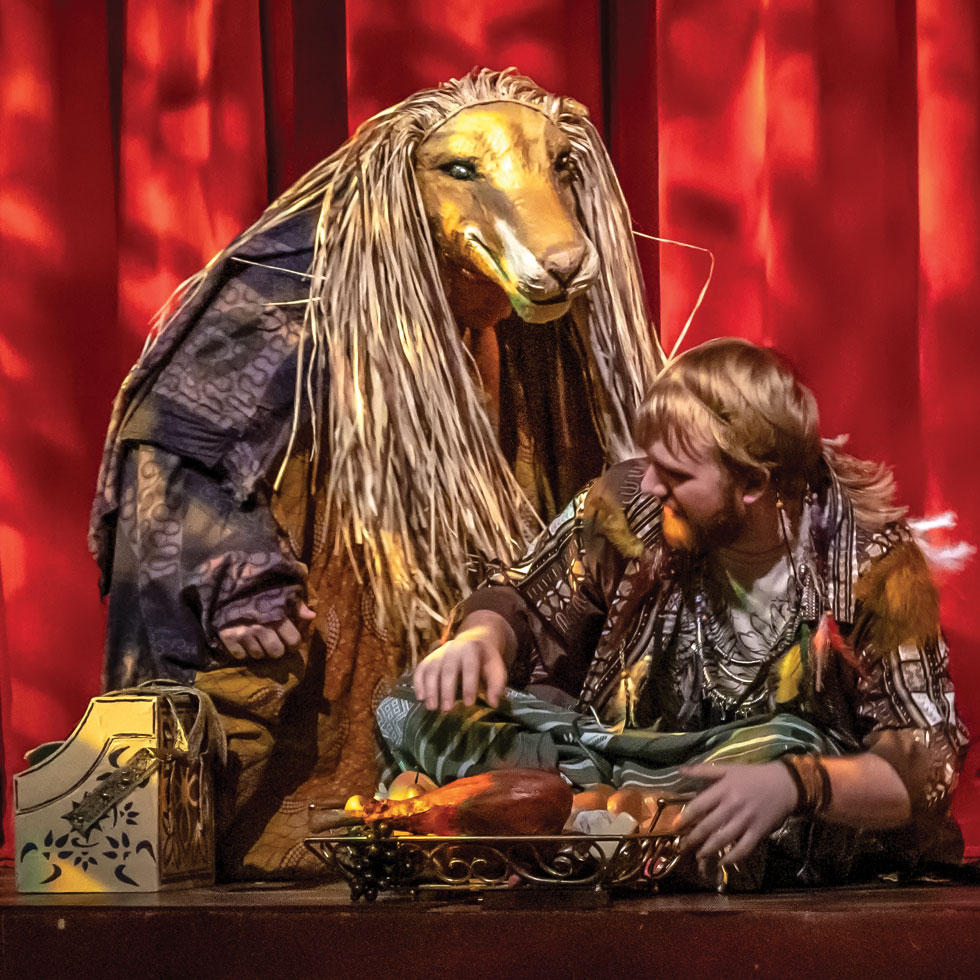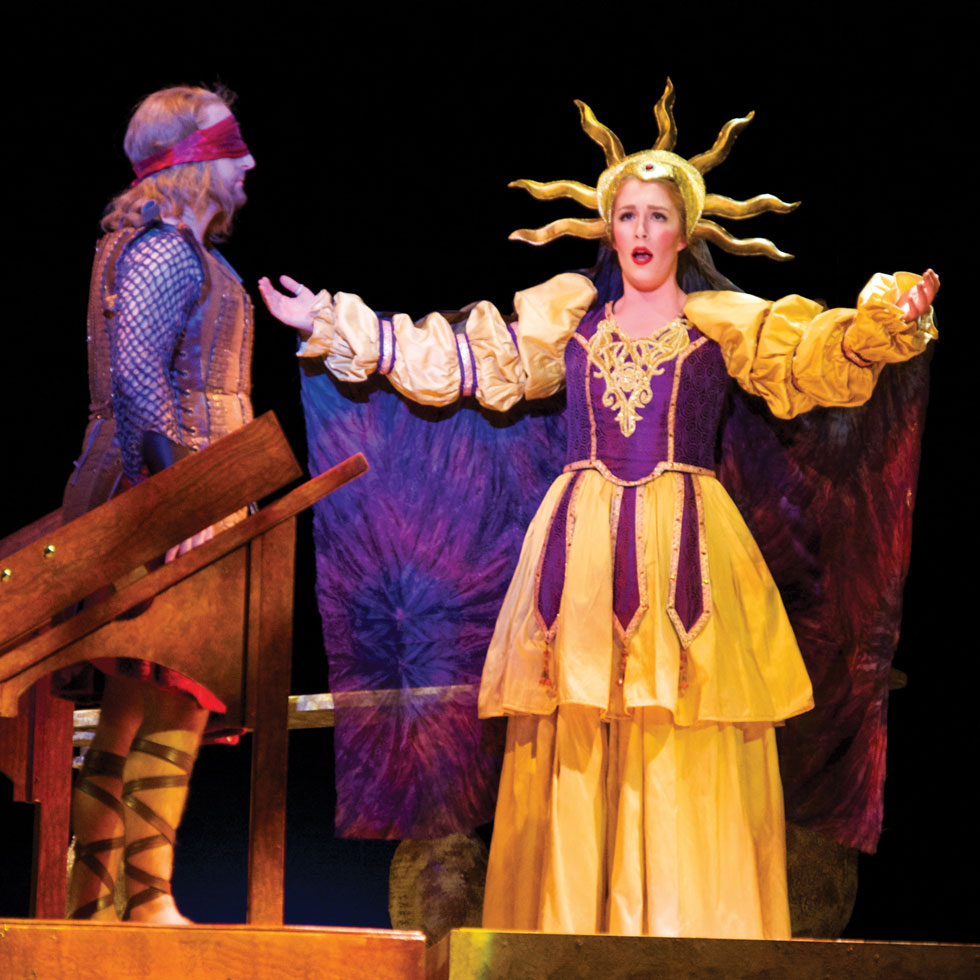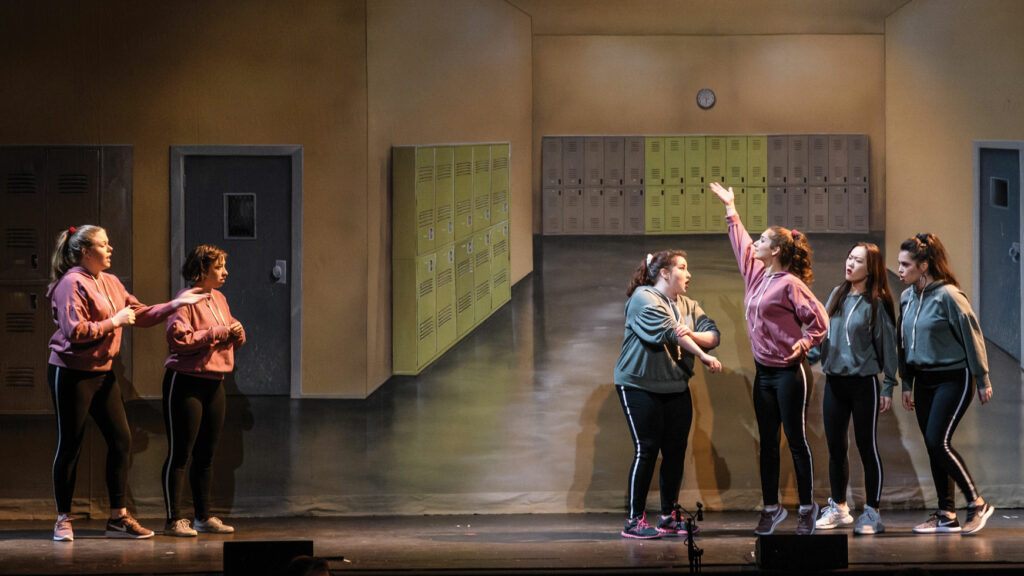CARMENS, TOREADORS, AND FIGAROS; TOSCAS, BESSES, AND QUEENS OF THE NIGHT – WHERE DO THEY COME FROM?
In North Carolina, UNCG Opera Theatre is the premier incubator for singers who advance to the world’s greatest stages.
In the past two years, they moved to virtual performances to modified live performances to almost-normal productions, except for the masks. But the School of Music continued to offer the best university-produced opera in the region, and the most comprehensive training in music.
As a training ground, UNCG Opera is rigorous, inspiring, and supportive.
UNCG is the only UNC System school where a student can earn a doctorate in voice and receive a comprehensive education in music that goes from a bachelor’s degree to the highest level. As Holley points out, that attracts a high caliber of artists.
Typically – as in, before the pandemic – UNCG Opera staged at least four operas a year, invaluable experience for students, and a boon for Triad music lovers. Their work has won seven first place and five second place awards in the National Opera Association’s annual Opera Production Competition and was named a finalist four times in The American Prize Competition. In 2019, “Falstaff” was a hit, with exquisite costumes. It took second place in the American Prize competition for production as well as for stage direction and conducting. Additionally, they brought fairy tales to life through opera for more than 10,000 elementary school children.
In 2020, Friday, March 13, the company had just completed a run-through of “Sister Angelic” – “which means we got to perform it,” said Holley – before things came to a halt. The rest of 2020 meant scene and aria work virtually and one-on-one with faculty.
“A lot of people took up singing arias from inside their homes – finding a way to keep working, trying to do what they do,” explained Holley.
“But you can only take so much of that. There’s no comparison to being live in the theater. And I don’t give up easily or lightly.”
Fortunately, Spring of 2021 offered more possibilities.
A live performance of “Roman Fever,” an opera based on a story by Edith Wharton, hit the UNCG stage, with a limited audience – 50-100, protected by 18-foot-by-6-foot plastic barriers – and more livestreaming the performance from home.
Also, Opera at the Carolina, which has been bringing opera to Guilford County Schools for more than 10 years years, came to life virtually, through a three-camera, green-screen format shot at the Greensboro Science Center for the productions of “Allison’s Voice” and “Cox and Box.”
Opera is every discipline that we have here… in one magical, fused art form.
–David Holley, UNCG director of opera
There were positives to the situation. Under normal circumstances, Holley and the performers brought 6,000 kids to the Carolina Theatre, but the virtual performances had the potential to reach up to 22,000.
Last fall, Holley was still eager to find a way for more of his singers to get back to the stage, and safely. With vaccination efforts lowering risk to some degree, they produced three operas in UNCG Auditorium, with masks required by both audience and singers, but otherwise in the usual way. There was one other prudent artistic-safety decision that Holley calls “a method to my madness.”
“We knew that we couldn’t have massive numbers of people onstage with each other,” he said.
So, they selected operas that could be performed with no more than two people onstage at a time – a modified version of “Allison’s Voice,” by School of Music faculty member Alejandro Rutty, “The Telephone” by Menotti, and “Mozart and Salieiri,” by Rimsky-Korsakov.
Spring of 2022 provided even more of a return to normalcy, and for many undergraduate and graduate student singers, a return to the stage. In March, the company performed “The Bartered Bride” in UNCG Auditorium and in April, once again, 6,000 Guilford County School students came to the Carolina Theatre to see UNCG Opera students perform in “The Telephone” and “Luke’s Song,” an opera written by Holley, and Mark Engebretson, based on a story by a GCS fifth-grader.
Holley is relieved and excited for the UNCG performers to be able to perform again, as they did before the pandemic.
“One of the most important things for these young people to do is get roles on their resume,” he said, “so that the young artist programs – the bridge between academic opera and the professional world of opera – can see they had that experience. That’s one of the crucial things that UNCG Opera Theatre provides And we’re so glad to be back.”
Alumni of UNCG Opera find success in the professional world, gracing the rosters of the world’s most prestigious houses – not only the Metropolitan Opera, which currently has 10 UNCG alumni – but also the New York City Opera (Jason Karn ’02), Houston Grand Opera (Tyler Smith ’00), Seattle Opera (Cheryse McLeod Lewis ’01), and Lyric Opera of Chicago (Jill Gardner). The impact is international, at Händelfestspiele Halle in Switzerland, Tchaikovsky Hall in Moscow, the Landestheater in Salzburg, Austria (Joel Sorenson ’92), Opéra de Montreal, (Donald Hartmann ’77, ’82 MM, UNCG professor of Voice),and at major summer festivals, such as Central City Opera (Andrew Owens).
